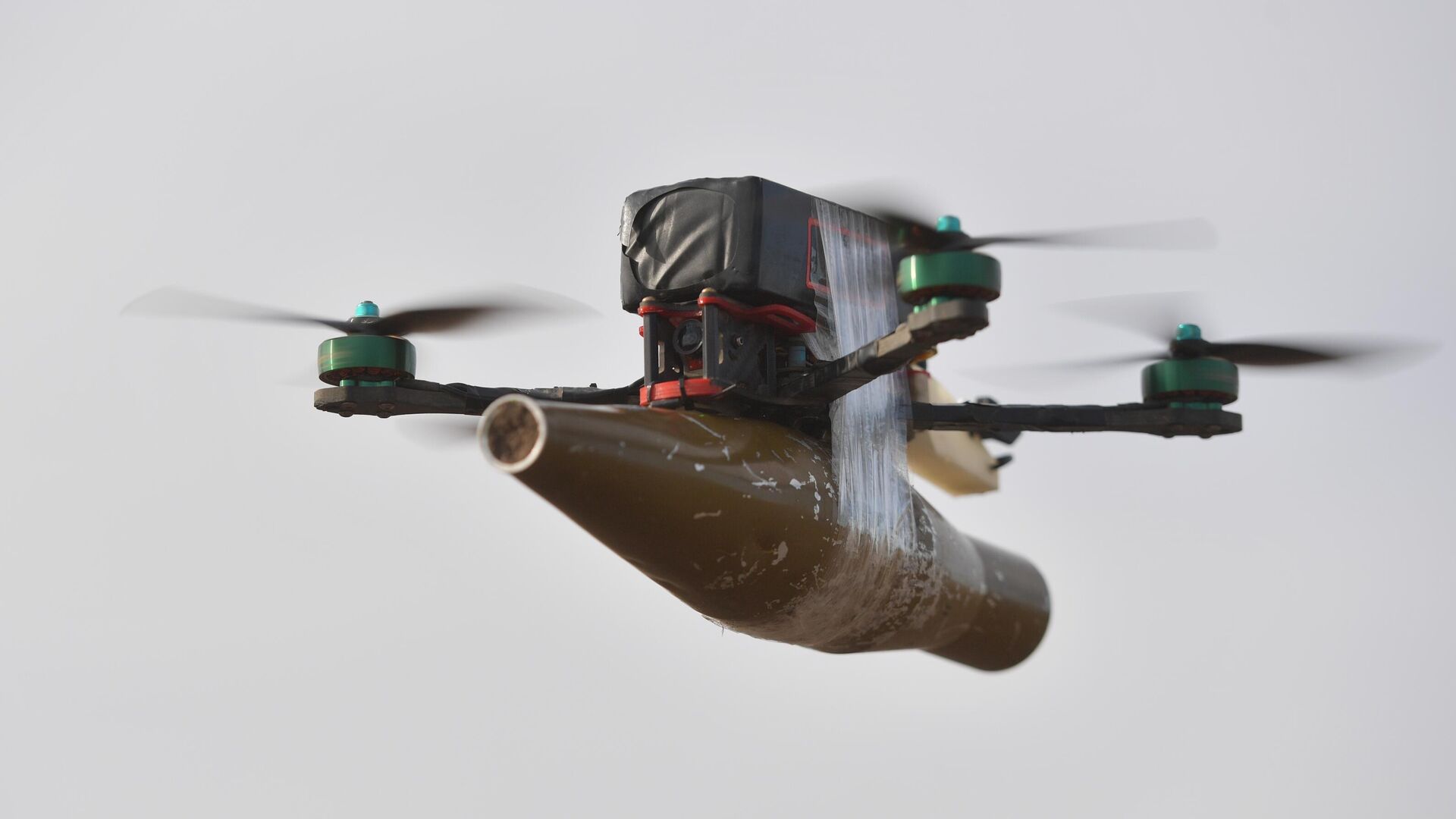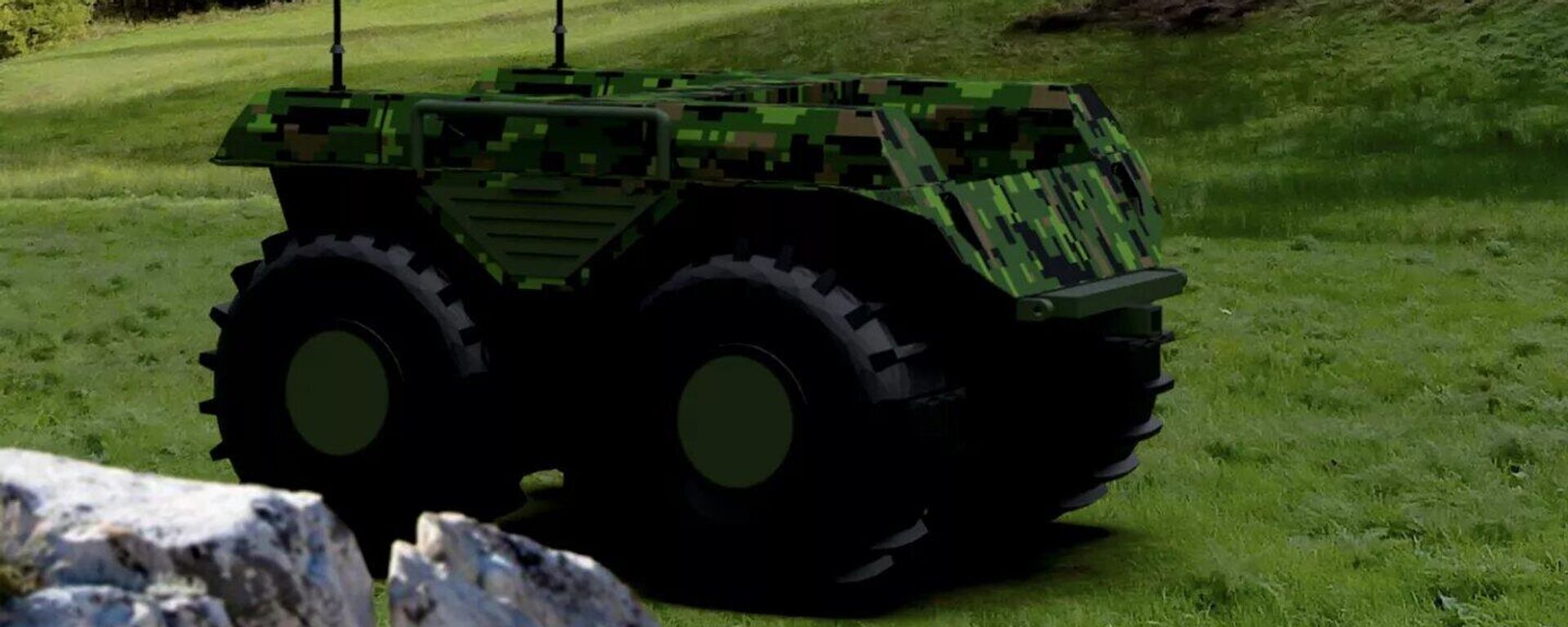https://en.sputniknews.africa/20240206/1064957537.html
First Russian-Built Onboard Computer for Drones Unveiled
First Russian-Built Onboard Computer for Drones Unveiled
Sputnik Africa
The module, which can be installed on various types of unmanned aerial vehicles, is designed to control these drones, according to developers. 06.02.2024, Sputnik Africa
2024-02-06T11:04+0100
2024-02-06T11:04+0100
2024-02-06T17:42+0100
russia
space
moscow
international
technology
information and communication technology
digital technology
drones
unmanned aerial vehicle (uav)
https://cdn1.img.sputniknews.africa/img/07e8/02/06/1064957718_0:130:3180:1919_1920x0_80_0_0_6b844cfe97f827a62f072764defb98cc.jpg
Russia’s first on-board digital computer module for drones will be showcased at the NAIS 2024 National Civil Aviation Infrastructure Exhibition and Forum, the Almaz Antey Air and Space Defense Corporation Deputy General Director Dmitry Savitsky told Sputnik. The two-day event kicks off in Moscow on Tuesday.He also said that Almaz Antey would present an automated system to monitor the use of airspace and ensure the safety of objects within the “Safe Sky” project at the NAIS 2024 exhibition.In addition, the corporation will showcase digital services helping a drone operator provide an unmanned aerial vehicle (UAV) with access to the use of airspace through a convenient web interface.Radar Field ExpansionSeparately, Savitsky told Sputnik that the radar field to monitor drones flying at low altitudes is being expanded over Russia.He explained that Almaz-Antey had created a multi-position drone monitoring system, which combines radio equipment for airspace surveillance and control as well as a common server to analyze detected UAVs.The new system creates a unified information field for low altitudes in the airspace, where drones, helicopters and small aircraft conduct flights. The system helps ensure control over the aircraft, namely, to monitor whether they stick to the prescribed routes, per Savitsky.
https://en.sputniknews.africa/20240114/1064612866.html
russia
space
moscow
Sputnik Africa
feedback@sputniknews.com
+74956456601
MIA „Rossiya Segodnya“
2024
Sputnik Africa
feedback@sputniknews.com
+74956456601
MIA „Rossiya Segodnya“
News
en_EN
Sputnik Africa
feedback@sputniknews.com
+74956456601
MIA „Rossiya Segodnya“
Sputnik Africa
feedback@sputniknews.com
+74956456601
MIA „Rossiya Segodnya“
russia, space, moscow, international, technology, information and communication technology, digital technology , drones, unmanned aerial vehicle (uav)
russia, space, moscow, international, technology, information and communication technology, digital technology , drones, unmanned aerial vehicle (uav)
First Russian-Built Onboard Computer for Drones Unveiled
11:04 06.02.2024 (Updated: 17:42 06.02.2024) The module, which can be installed on various types of unmanned aerial vehicles, is designed to control these drones, according to developers.
Russia’s first on-board digital computer module for drones will be showcased at the NAIS 2024 National Civil Aviation Infrastructure Exhibition and Forum, the Almaz Antey
Air and Space Defense Corporation Deputy General Director Dmitry Savitsky told Sputnik.
The two-day event kicks off in Moscow on Tuesday.
The device aims to unify onboard equipment using a domestically-made electronic component base, Savitsky said, adding that the module is equipped with a real-time operating system.
He also said that Almaz Antey would present an automated system to monitor the use of airspace and ensure the safety of objects within the “Safe Sky” project at the NAIS 2024 exhibition.
In addition, the corporation will showcase digital services helping a drone operator provide an unmanned aerial vehicle (UAV) with access to the use of airspace through a convenient web interface.
Separately, Savitsky told Sputnik that the radar field to monitor drones flying at low altitudes is being expanded over Russia.
"It has already been significantly expanded as compared to what it was before the beginning of the Russian special military operation. The enlargement continues in various directions, especially in the areas, where threats remain," Savitsky added.
He explained that Almaz-Antey had created a multi-position drone monitoring system, which combines radio equipment for airspace surveillance and control as well as a common server to analyze detected UAVs.
The new system creates a unified information field for low altitudes in the airspace, where drones, helicopters and small aircraft conduct flights. The system helps ensure control over the aircraft, namely, to monitor whether they stick to the prescribed routes, per Savitsky.


